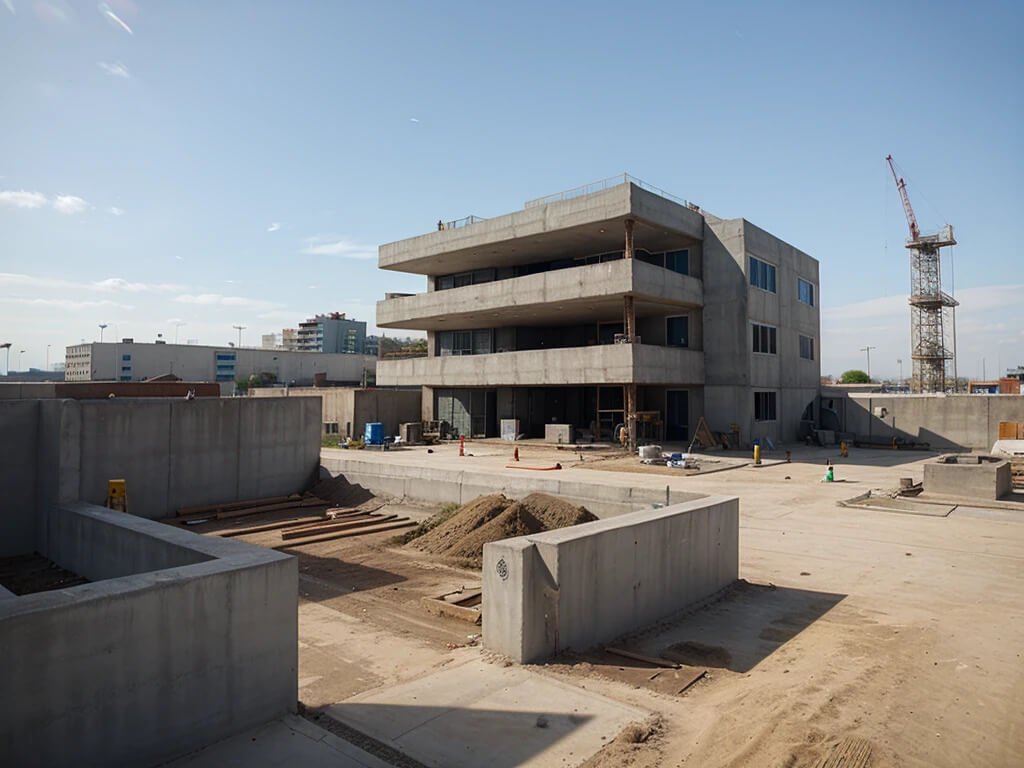10 Key Steps to Launch and Expand Your Concrete Business
Table of Contents
- Defining Your Concrete Business
- Conducting Market Research
- Creating a Detailed Business Plan
- Legal Considerations and Regulations
- Investing in Quality Equipment
- Building a Professional Team
- Effective Marketing Strategies
- Establishing an Online Presence
- Prioritizing Customer Service
- Ensuring Safety Standards
- Expanding Your Concrete Business
- FAQs: Launching and Expanding a Concrete Business
1. Defining Your Concrete Business
Launching a successful concrete business starts with a clear definition of your goals, services, and target market. Clearly identify your niche, whether it's residential, commercial, or specialized concrete services.
Understand the specific needs of your target audience and tailor your business approach to meet those needs. Consider the geographical areas you want to serve and the scope of projects you aim to undertake.
Begin by answering fundamental questions such as:
- What types of concrete services will you offer?
- Who is your ideal customer?
- What geographical areas will you serve?
2. Conducting Market Research
Thorough market research is essential to identify competitors, assess demand, and pinpoint opportunities for growth in the concrete industry. Analyze trends, pricing strategies, and customer preferences.
Gather insights into the local market, including potential clients, construction projects, and the regulatory environment. This information will guide your business strategy and help you make informed decisions.
Your market research plan should encompass:
- Competitor analysis
- Target market demographics
- Industry trends and forecasts
- Regulatory and environmental considerations
3. Creating a Detailed Business Plan
A well-structured business plan is the roadmap to success. Clearly outline your business objectives, financial projections, marketing strategies, and operational plans.
Include details on startup costs, funding sources, and a timeline for achieving milestones. A comprehensive business plan not only attracts investors but also serves as a valuable guide for your business's growth.
Components of a robust business plan:
- Executive summary
- Business description and mission statement
- Market analysis and competitive landscape
- Financial projections and funding requirements
- Marketing and sales strategy
- Operational plan
4. Legal Considerations and Regulations
Navigate the legal landscape by understanding the regulations and requirements for starting a concrete business. This includes obtaining the necessary licenses, permits, and insurance coverage.
Comply with safety standards and environmental regulations to ensure your business operates ethically and avoids legal complications down the line.
Key legal considerations:
- Business structure (LLC, corporation, sole proprietorship)
- Licensing and permits
- Insurance coverage
- Environmental regulations
5. Investing in Quality Equipment
The foundation of a successful concrete business is high-quality equipment. Invest in durable mixers, pumps, forms, and finishing tools to ensure efficient operations and superior results.
Regular maintenance and upgrades are crucial to keep your equipment in top condition, reducing downtime and enhancing productivity on construction sites.
Essential equipment for a concrete business:
- Concrete mixers and trucks
- Concrete pumps
- Forms and molds
- Finishing tools
6. Building a Professional Team
Assemble a skilled and reliable team of concrete professionals who share your commitment to quality and safety. Hire experienced concrete workers, project managers, and administrative staff to cover all aspects of your business.
Provide ongoing training to keep your team updated on the latest industry trends, technologies, and safety protocols.
Key team members to consider:
- Concrete workers and finishers
- Project managers
- Administrative staff
- Safety officers
7. Effective Marketing Strategies
Develop a robust marketing strategy to promote your concrete business. Utilize online and offline channels to reach potential clients, architects, contractors, and developers.
Highlight your expertise, completed projects, and client testimonials. Utilize social media, a professional website, and targeted advertising to increase visibility and attract new business.
Key elements of an effective marketing strategy:
- Professional website with portfolio
- Social media presence
- Search engine optimization (SEO)
- Content marketing and blogging
8. Establishing an Online Presence
In today's digital age, a strong online presence is non-negotiable. Create a professional website that showcases your services, portfolio, and contact information.
Optimize your website for search engines to ensure potential clients can easily find your business online. Leverage social media platforms to engage with your audience and share updates about your projects.
Steps to establish an online presence:
- Create a professional website
- Optimize for search engines (SEO)
- Engage on social media platforms
- Showcase your portfolio online
9. Prioritizing Customer Service
Exceptional customer service is a cornerstone of a successful concrete business. Build lasting relationships with clients by delivering quality work, adhering to timelines, and addressing any concerns promptly.
Encourage and collect customer feedback to continuously improve your services. Satisfied clients become advocates for your business and contribute to its positive reputation.
Customer service best practices:
- Timely project completion
- Clear communication with clients
- Addressing and resolving issues promptly
- Collecting and leveraging customer feedback
10. Ensuring Safety Standards
Prioritize safety in all aspects of your concrete business. Implement rigorous safety protocols, provide ongoing safety training, and stay informed about industry best practices.
Regularly update safety measures based on the latest standards and technologies to ensure the well-being of your team and compliance with regulations.
Safety measures to implement:
- Rigorous safety training for all employees
- Regular safety audits and inspections
- Investment in safety equipment and technology
- Adherence to industry safety standards
11. Expanding Your Concrete Business
Once your concrete business is established, explore opportunities for expansion. Consider diversifying your services, entering new markets, or forming strategic partnerships with other construction-related businesses.
Continuously assess market trends and identify areas where your business can grow and thrive.
FAQs: Launching and Expanding a Concrete Business
Q1: What are the essential steps for starting a concrete business?
A: Begin by defining your niche, conducting thorough market research, creating a detailed business plan, and addressing legal considerations.
Q2: How can I effectively market my concrete business?
A: Develop a robust marketing strategy that highlights your expertise, completed projects, and client testimonials. Utilize online channels, social media, and targeted advertising for increased visibility.
Q3: What steps can I take to ensure safety standards in my concrete business?
A: Implement rigorous safety protocols, provide ongoing safety training, and stay informed about industry best practices. Regularly update safety measures based on the latest standards and technologies.


